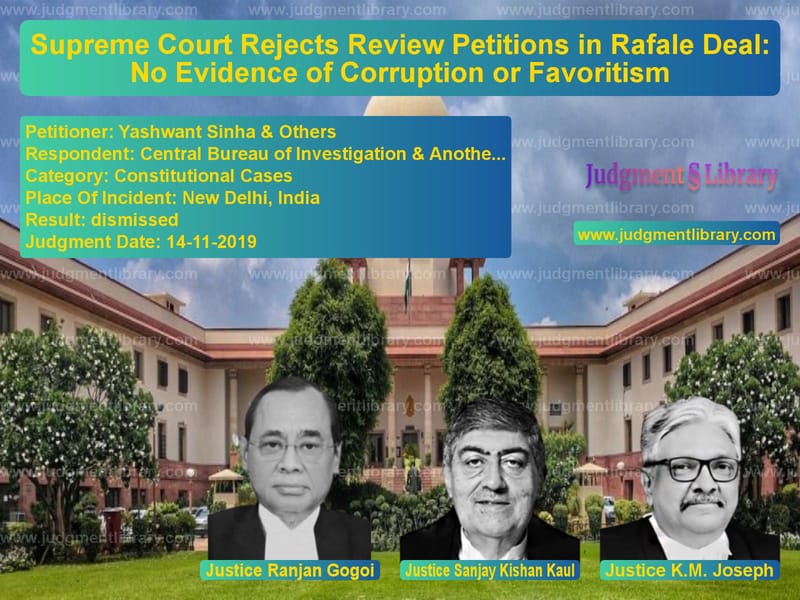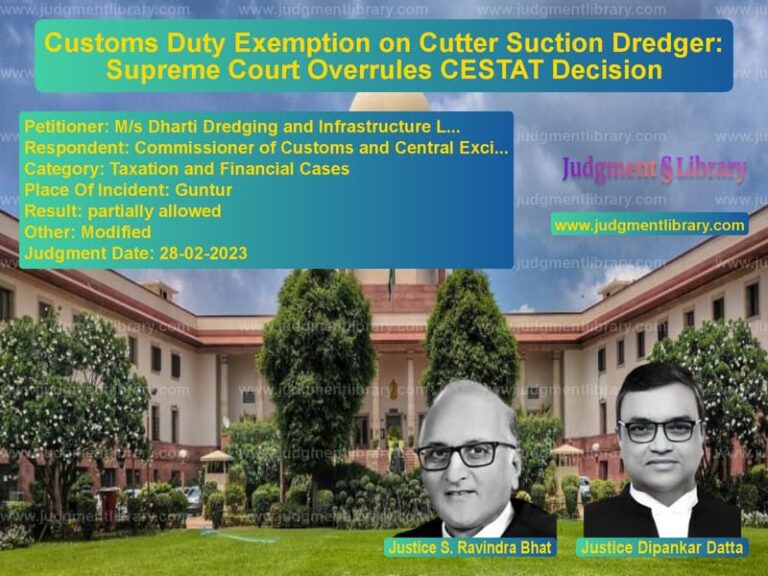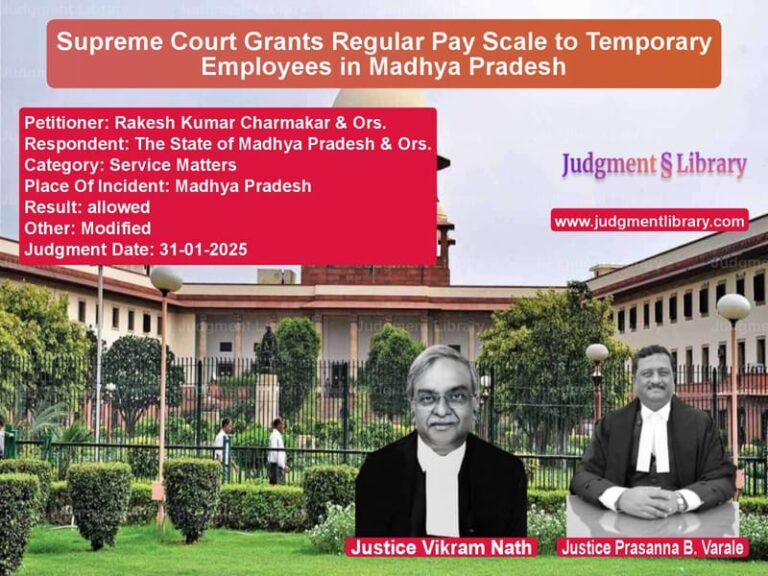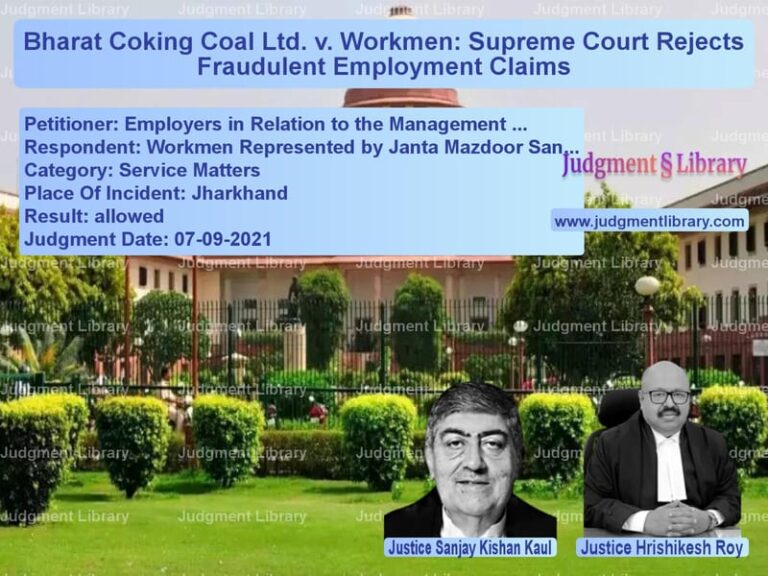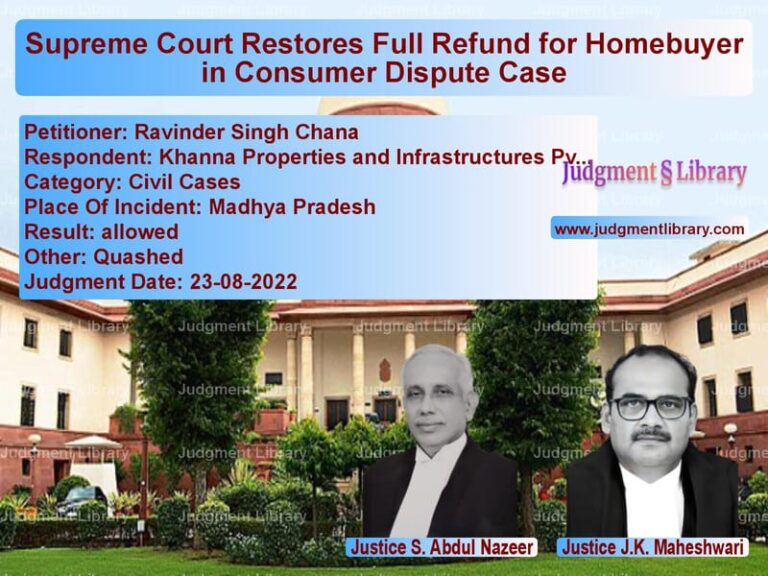Supreme Court Rejects Review Petitions in Rafale Deal: No Evidence of Corruption or Favoritism
The Supreme Court of India, on November 14, 2019, dismissed the review petitions challenging its earlier decision on the Rafale fighter jet deal. The review petitioners, including former Union Ministers Yashwant Sinha and Arun Shourie, along with advocate Prashant Bhushan, had sought an investigation into alleged irregularities in the deal. The petitioners argued that there were procedural violations, financial mismanagement, and favoritism in selecting offset partners. However, the Supreme Court reaffirmed its December 2018 ruling, stating that no substantial evidence of wrongdoing had been presented.
Background of the Rafale Deal
The Rafale deal involved the procurement of 36 multi-role fighter jets from French manufacturer Dassault Aviation through an intergovernmental agreement between India and France. The deal replaced an earlier arrangement, under which 126 Rafale jets were to be purchased, with 108 of them being manufactured in India by Hindustan Aeronautics Limited (HAL). The revised deal, announced in April 2015 and finalized in September 2016, was criticized by opposition parties and activists, who claimed that the removal of HAL and the inclusion of Reliance Aerostructure Limited as an offset partner pointed to favoritism.
Key Allegations by the Petitioners
The petitioners raised several concerns, including:
- The government had misrepresented facts to the Supreme Court regarding the submission of pricing details to the Comptroller and Auditor General (CAG) and the Public Accounts Committee (PAC).
- The new agreement bypassed the standard defense procurement procedures, raising questions about its transparency.
- The selection of Reliance Aerostructure Limited as an offset partner was arbitrary and aimed at benefiting a specific private entity.
- The removal of HAL from the original agreement weakened India’s long-term defense manufacturing capabilities.
- Parallel negotiations were conducted by the Prime Minister’s Office (PMO), undermining the Ministry of Defence’s authority in the deal.
- The Court should direct the registration of a First Information Report (FIR) and order a CBI probe into the matter.
Government’s Response
The government defended the deal, emphasizing that:
- The procurement followed due process and was necessary for national security, given the urgent requirement for modern fighter jets.
- The pricing of the jets was comparable to or even lower than the rates in previous negotiations.
- The selection of offset partners was Dassault Aviation’s prerogative under India’s offset policy, and the government had no role in it.
- Judicial review in matters of defense procurement should be limited, as courts lack the technical expertise required to evaluate such contracts.
- The CAG had reviewed the deal and found no anomalies, despite the petitioners’ claim that its report had not been examined by the PAC.
- The allegations of corruption were politically motivated and lacked any factual basis.
Supreme Court’s Observations
In dismissing the review petitions, the Supreme Court made several key observations:
- The pricing and selection process had been scrutinized in the original verdict, and no fresh evidence was presented to warrant reconsideration.
- Judicial intervention in defense contracts should be exercised with caution, especially in matters involving national security.
- There was no conclusive evidence to support claims that the selection of offset partners was manipulated by the government.
- The petitioners had failed to establish any procedural lapse or undue influence in the negotiation of the contract.
In its ruling, the Court noted:
“We do not consider this to be a fair submission for the reason that all counsels, including counsel representing the petitioners in this matter, addressed elaborate submissions on all the aforesaid three aspects.”
Regarding the demand for an investigation, the Court observed:
“We do not find any substantial material on record to show that this is a case of commercial favoritism to any party by the Indian Government.”
Contempt Petition Against Rahul Gandhi
During the proceedings, a contempt petition was filed against Rahul Gandhi, former President of the Indian National Congress, for allegedly misrepresenting the Court’s verdict in the Rafale case. Gandhi had publicly stated that the Supreme Court had confirmed allegations of corruption in the deal, a claim that was factually incorrect.
The Court took a serious view of the matter but accepted Gandhi’s apology. The judgment stated:
“We must note that it is unfortunate that without verification or even perusing as to what is the order passed, the contemnor deemed it appropriate to make statements as if this Court had given an imprimatur to his allegations against the Prime Minister, which was far from the truth.”
Legal Implications of the Judgment
With this ruling, the Supreme Court effectively closed all legal avenues challenging the Rafale deal. The verdict reaffirmed several legal principles:
- Judicial review in defense procurement cases should be limited to assessing procedural legality rather than policy decisions.
- Defense contracts involving national security should not be subjected to excessive judicial scrutiny unless clear illegality is demonstrated.
- Allegations of corruption must be backed by credible evidence, not mere political speculation.
- The Court cannot interfere in contractual matters unless there is manifest arbitrariness or favoritism.
Conclusion
The Supreme Court’s dismissal of the review petitions in the Rafale deal case marked the end of a high-profile legal battle that had significant political and defense implications. The ruling reinforced the importance of maintaining judicial restraint in matters of national security and highlighted the necessity of concrete evidence when making allegations of corruption.
While the petitioners expressed disappointment with the verdict, the government hailed it as a vindication of its defense procurement policies. The judgment set a precedent for future cases, underscoring that courts will not intervene in policy decisions unless there is substantial proof of illegality or procedural lapses.
Petitioner Name: Yashwant Sinha & Others.Respondent Name: Central Bureau of Investigation & Another.Judgment By: Justice Ranjan Gogoi, Justice Sanjay Kishan Kaul, Justice K.M. Joseph.Place Of Incident: New Delhi, India.Judgment Date: 14-11-2019.
Don’t miss out on the full details! Download the complete judgment in PDF format below and gain valuable insights instantly!
Download Judgment: Yashwant Sinha & Oth vs Central Bureau of In Supreme Court of India Judgment Dated 14-11-2019.pdf
Direct Downlaod Judgment: Direct downlaod this Judgment
See all petitions in Public Interest Litigation
See all petitions in Fundamental Rights
See all petitions in Constitution Interpretation
See all petitions in Judgment by Ranjan Gogoi
See all petitions in Judgment by Sanjay Kishan Kaul
See all petitions in Judgment by K.M. Joseph
See all petitions in dismissed
See all petitions in supreme court of India judgments November 2019
See all petitions in 2019 judgments
See all posts in Constitutional Cases Category
See all allowed petitions in Constitutional Cases Category
See all Dismissed petitions in Constitutional Cases Category
See all partially allowed petitions in Constitutional Cases Category

